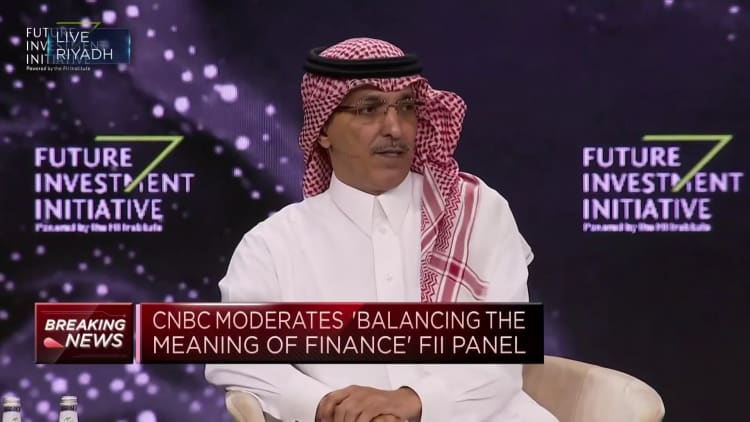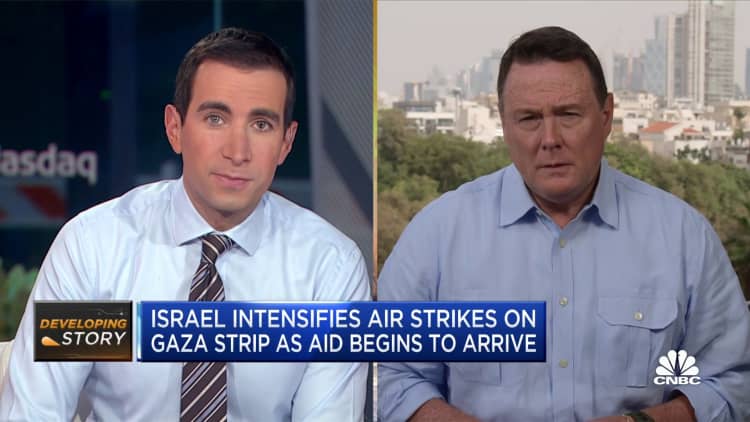
Saudi Finance Minister Mohammed al-Jadaan on Wednesday discussed his country's efforts to de-escalate what he called "recent events" in the Middle East region, without naming any of the parties involved.
"Our sympathy goes to those who are suffering, civilians, civilian casualties wherever they are, and international law needs to be respected — without international law being respected the world would be in chaos," al-Jadaan said during a panel in Riyadh, Saudi Arabia, moderated by CNBC's Dan Murphy.
"So we need calm, we need wisdom, we need to collaborate, to bring calm and make sure that we de-escalate."
Al-Jadaan appeared to be talking about the rapidly intensifying war between Israel and Palestinian militant organization Hamas, which began on Oct. 7 after Hamas carried out an unprecedented surprise attack on southern Israel that killed more than 1,300 people. Since then, retaliatory Israeli airstrikes and a total siege of the already blockaded and Hamas-controlled Gaza Strip have killed more than 6,000 Palestinians, according to Gaza health authorities.
The United Nations and numerous countries have called for a cease-fire, so far to no avail.
"We have seen this in the region where before the 7th of October a lot of de-escalation had happened, which brought a lot of hope for the region, and we don't want the recent events to derail that," the minister said. "So we are making a lot of efforts with our partners to ensure that we go back to where we are and continue the development path."

Saudi Arabia was in the midst of U.S.-led diplomatic talks to normalize its relations with Israel, something that the Biden administration hailed as being transformative for stability in the region. A major sticking point, however, was the Israeli-Palestinian conflict. The United Nations classifies Israel as an occupier state over the Palestinian territories, whose occupations and annexations following the 1967 Six-Day War remain in violation of international law.
"For us, the Palestinian issue is very important, we need to solve that part. ... We hope that it will reach a place that it will ease the life of the Palestinians and get Israel as a player in the Middle East," Saudi Crown Prince Mohammed bin Salman said in an interview with Fox News in September.
In the days since Oct. 7, however, and as Israel pummels Gaza with airstrikes and Palestinian casualties mount, the likelihood of such a deal appears significantly more distant.
Crown Prince Mohammed, Saudi Arabia's de-facto ruler, appeared to favor resuming normalization talks with Israel when the conflict ends.
In a call between U.S. President Joe Biden and the Saudi crown prince, the two leaders agreed on the importance of working toward "sustainable peace" between Israelis and Palestinians once the crisis subsides, the White House said. It added that they will be "building on the work that was already underway between Saudi Arabia and the United States over recent months," likely a reference to the Biden administration's normalization efforts.
Biden and other U.S. officials have said they believe the Hamas attack was carried out in part to disrupt efforts at Saudi-Israeli normalization.


